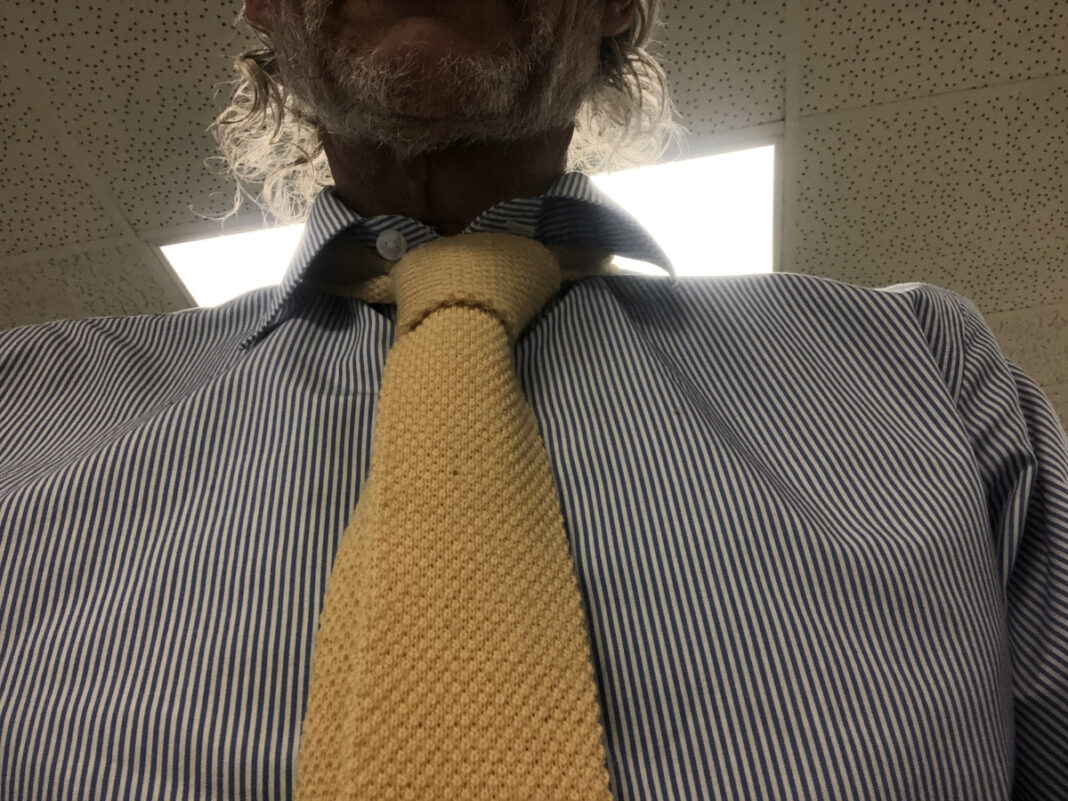UNITED STATES—As a European Jew who cast off ethnic identity the minute they touched American soil, Sam indeed became a touchstone of that American, who suffers that lack while giving others inspiration for being so secularly endowed.
Of course middle age is something unknowable…“We cannot know the middle age until we get to the end,” he would joke.
It was in late middle age, near the end of Sam’s extremely long middle age, that he became a champion of establishing a country for the Jewish people. “We have a Jewish country club in New Orleans,” Sam was fond of joking at mashed potato and prime rib events. “If we have a country club, we can have a country.”
What he held in was that it still rankled (at the age of 67) that they rejected him, his own people! Sam was too suspect, too sketchy, too tied in with the loan sharks; well, that really steels somebody for pressure. Afraid somebody might kidnap your child, if delinquent.
Delaney grew up on a wheat farm in what became Moldava, wedged between Ukraine and Romania. When his father died young, Sam decided to set sail for America. By 16, he passed for 26, way mature beyond his years. Hardened as the men in the Dorotea Lang’s photos, a tough operator, a dead-end kid, coolly figuring angles. Where’s the play? What’s in it for me? His humor was dark, his explanations few. Sam was driven by the same raw energy that attracted the most ambitious to America and doomed the unambitious. Sam played his cards close to the vest and lived by a few rules, next time, don’t go back, don’t commit adultery.
“You should write a book, Mr. Delaney,” said Prescott Barnes, one of the Boston Brahmins who had some fiber.
“I don’t write a book. I don’t even read a book.”
“But that wonderful library you have.”
Delaney noticed that when the banana boats docked in Mobile, Alabama they left bananas too ripe for further shipment discarded carelessly on the boat. He offered to buy them. Delaney loaded his haul on a train headed for his home in Selma, Alabama, where his uncle had a store. He hoped he could make it home in time to sell them. However, the train kept getting delayed and Sam feared his bananas would soon be rotten. A Western Union man suggested he wire the upcoming towns on their route and alert them that fresh, delicious bananas would be available for sale to the local merchants for dirt-cheap prices. It worked brilliantly.
Local sellers lined up and purchased Sam’s bananas right off the train. Sam began running the same train route and was soon selling more than a million bananas a year, making him wealthy by his late teens. The owner of Allied Fruit, Franklin Sturgis, who shipped more than half the bananas in the world, was so impressed with Sam’s ingenuity that he signed an exclusive contract with him, allocating all of his “ripes” to him for a set fee.
Sam was just getting warmed up. Miller’s research uncovered that Sam was a loner who preferred his own company to idle chatter. Struck by the many similarities in their lives—the September birthday. Delaney was unusually health-conscious and known to stand on his head for 15 minutes after eating, believing this to aid digestion, drank no liquids for 30 minutes before or after meals. A number of people in New Orleans believed Sam had a chip on his shoulder and resented being snubbed by the Protestants and Catholics in America due to his Jewish origin. Others felt he couldn’t care less. Indeed, according to his biographers, Delaney was less the sort of man who didn’t care than the sort of man who could make you believe he didn’t care.
“I really didn’t care once the Brahmins of Boston would rent to me, but nobody wanted to sell. When that happened, honest to God. Hell with them. I think I had a good laugh, and when I laugh I came to my senses a room at the Ritz-Carlton was more cost effective. That’s where old Sturgis holed up. I was proud to be called El Amigo, that’s the type of guy I was. And then I became El Enemigo.”
At the age 18 Delaney quickly began to buy land to grow his own bananas. What business now calls vertical integration. He began in Honduras and extended his reach to several other countries including Nicaragua, Ecuador, Guatemala, Panama and Costa Rica. He felt superior to his competitors who remained entrenched in New York or Boston and did not possess his hands-on experience or the respect and genuine warmth the people had, based on his days as David to the leviathan of Allied Producers.
Sam spent most of his year living on his plantations amidst his workers and managers and continually strove to create a better and more efficient business. If a government was unfriendly to him, he harnessed the means to replace those in charge with political leaders more accommodating to him. If he could not secure a bank loan, he went through shady channels.
Soon enough, his company, Chamelecón, had 10,000 workers and was harvesting eight million bunches of bananas that everyone claimed were the tastiest, with the fattest fingers of mallowy banana, ever seen. For Sam though, it was still not good enough.
To be continued…
Graydon is the Wizard of Fiction.






